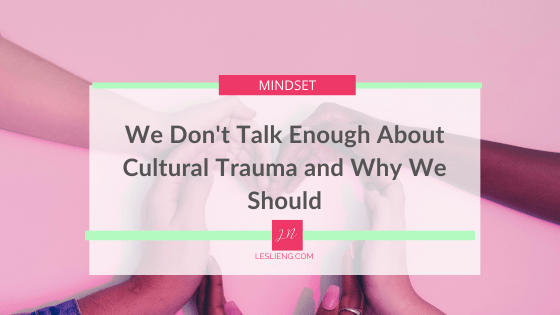
This isn’t a depressing article I promise you. And if the title makes you want to turn away then you are exactly who I am talking to. The trauma we know about are of those who have been suffering from the cultural trauma that has been happening for centuries, the oppression, racisim, abuse. That trauma we talk about, though mainly only people who suffer from it and those who work with those folx. But cultural trauma is everywhere and we all bear it. The trauma we don’t talk about is the cultural trauma that has ripped us from being whole, that has separated the physical, emotional and spiritual being from itself. That cultural trauma is being perpetrated on all of us and we don’t even know it.
We don’t talk about our own trauma because there is so much more offensive, dire and horrifying trauma that does exist out there. All the racial, oppressive, abusive, violent and horrifying traumas that do exist from tryanny, gaslighting, physical and sexual abuse and systemic exclusion. Those traumas we know about, those traumas are significant. So we discount our own traumas, the more subtle and imperceptible ones. The ones that are a result simply because we are not allowed to be whole in this culture.
The trauma of being cleaved apart from your spiritual and emotional self. The trauma of not being allowed to be whole, to show your emotions or to honor your spiritual connections. That trauma leaves marks too. It’s evidenced in the loss of creativity as you get older, it’s evidenced in the need to conform to fit in, the need to strive for typical markers of success. All of these things that tell you what you should be, what you should strive to achieve, what productivity means. All of these things are a result of the trauma of being part of the white dominant culture. It is a narrative that is reductionist, competitive, and diminishes the light that shines within each of us.
We don’t talk about this kind of trauma enough because most of us aren’t even aware that we suffer from it. Plus there are so many other more significant traumas in the world. But this again is the dominant cultural narrative, that everything is a competition, that your trauma is worse than mine so I have no right to talk about it. We are surrounded by and have internalized the ways of thinking of our abuser, the dominant cultural narrative.
I am choosing to free myself from this narrative and by doing so I must talk about this trauma. I must talk about it and allow myself and others to free themselves from not acknowledging it because we think it can’t really be called trauma, nothing horrific happened to me. But it is. And it is this unhelpful narrative that will allow us to continue to ignore it, continue to diminish the importance that this narrative has had on all of us and limit our ability to address it.
So I am declaring here that we don’t talk about cultural trauma nearly enough. We don’t talk about it enough in all the myriad little ways it extinguishes our flame, our creativity, our soul, our spirit and our connection to our inner self. If we could all acknowledge the harm in this narrative that has cleaved us from our spiritual self and our wholeness, we could all move a little closer to reconciling our interconnectness, and our obligations to be more inclusive, equitable and sustainable.
